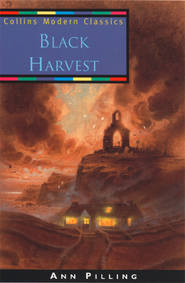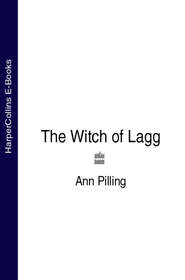По всем вопросам обращайтесь на: info@litportal.ru
(©) 2003-2024.
✖
The Beggar’s Curse
Настройки чтения
Размер шрифта
Высота строк
Поля
Her tiny cottage was called Blake’s End. It was easy to find because it was the very last house in the village. The only other place anywhere near it was an untidy farmhouse, with an ancient caravan in a field at the front. This was Pit Farm where Tony and Sid Edge lived with their parents and their sister Violet.
The caravan was apparently let to a family of cousins. It was moored at the edge of a great sea of rusting machinery, old radiators, car tyres, and lumps of old iron. Oliver walked past slowly, to get a good look. In a place like Stang there might be some old farming tools. There might even be a man trap. . .
As he lurked in the lane the caravan door opened and three small children sidled out to inspect him. They were pale-faced and doughy-looking, overweight and squat, a bit like puddings. They stared at Oliver, all in a row, like a set of small toby jugs.
But he wasn’t going to be put off by three little kids. In the long grass he could see something quite promising, a cruel-looking cutting instrument with spikes. He bent down to look at it but the Puddings never took their gaze off him. They followed every move he made with their hard little eyes. Then one of them yelled, “Mam! Mam!” and a face popped out from the doorway. “Keep your hands off that!” the woman shrieked. “This is private property. So clear off!”
Oliver grabbed his Thermos flask and fled, hardly daring to look up at the cheerless farmhouse where the Edges lived, and he didn’t stop running till he was outside Miss Brierley’s door, at Blake’s End.
Nobody answered his knock, so he just walked in. The old lady’s bed was in a corner under the window. She lay propped up on pillows but her eyes were shut, and her breathing was irregular and noisy. Rose Salt sat on a chair by the bed, reading slowly and carefully from a copy of The Times.
Oliver felt rather ashamed. She could read then, and with some expression and feeling. “Rose,” he whispered. “I’ve brought the soup from Molly. You left it behind.” Her sad brown eyes slid from the newsprint to the red flask, then to his face. She said nothing, only shook her head slightly, and went on reading. The Times was obviously Miss Brierley’s bedtime story. She was dozing off quite nicely now, and Rose was pleased.
Oliver walked slowly down the hill again, towards Blake’s Pit. The old woman was dying, he’d realised that the minute he entered the house. It wasn’t the smell, or the harsh breathing, or the papery chalk-white cheeks, or the lifeless hair. It was something in the air. Death waiting.
It didn’t worry him. Several of his mother’s old people had been carted off to hospital and never brought back. In time, others, equally old, had replaced them. That was life. But a death like this would upset Prill. She was a touchy, nervous kind of person, with too much imagination for her own good. Oliver hoped the old woman would hang on for a bit longer, at least till they all went home.
Her cottage was in a prime spot, with a perfect view of Blake’s Pit down below. Oliver hadn’t realised it was quite so big, and he’d forgotten how round it was. The still waters looked very broody and dark today; there was no sun, and rain was threatening. Black Pit was its original name, according to his father, and the locals said it was bottomless.
He shivered slightly, turned up his collar and headed for Elphins. He didn’t see the three twisted little faces peering at him through the dirty caravan window, or Sid and Violet Edge spying down on him from their upstairs landing, cracking jokes about his skinny little legs.
Prill had got up very late and spent the morning writing a letter to Angela Stringer. On their way up to Winnie Webster’s bungalow she dropped it in the letter box outside the Edges’ shop.
“Dear Angela,” she’d written. “We’re here, and guess what? I’ve won second prize in a competition. First prize – two weeks’ holiday in Stang, Second prize – three weeks’ holiday in Stang. Ha Ha, funny joke. Do you get the message? It’s awful. We’re all freezing to death in this house. Molly Bover’s quite nice, arty, but definitely rather vague, and forgets half you say. Someone lives in called Rose Salt. She cooks and cleans up, and looks a real weirdo. I should think she’s got no parents – Molly’s the sort of person who seems to like helping ‘lame dogs’.
And while I’m on the subject, she’s got these two horrible poodles called Potty and Dotty. Last Christmas someone left them behind, in an empty house, and Molly saved them from the vet’s needle! They obviously get on her nerves, but she felt sorry for them. ‘One of life’s nice people’, as your dad would say.
Everyone round here is either old or peculiar, or both. There’s a vile family called Edge that seems to rule the village and has a finger in every pie. Nobody likes them, not even Molly. Their Tony (18) is the local heart-throb. Honestly, you should just see him.
I am going riding by the way, Molly’s said she can fix it up for me. There are some horses in the village, three in a field just outside my bedroom window. But guess what? On closer inspection the one I really fancied turned out to be an old carthorse!
Now don’t forget to write.
In deepest gloom, Prill.”
It really was a masterpiece of spite, and Prill put it in the letter box feeling rather uncomfortable. She hoped the Reverend Stringer wouldn’t read it too. If he did, he’d probably drop straight on to his knees and start praying for her soul.
CHAPTER FOUR (#ulink_23474141-cee0-59b8-9a15-7c629d81d397)
Winnie Webster must have been lying in wait for them behind her front door, because the minute they knocked it opened quickly and they were ushered inside. She talked non-stop as she drew up chairs and made them sit down in a small, crowded room. Jessie, curiously cowed by the atmosphere, came in rather unwillingly and slumped at Prill’s feet. But the minute she wagged her tail all the ornaments on the mantelpiece rattled.
“Oh dear,” Miss Webster said doubtfully. “I didn’t know you had a dog. I’m a cat person myself. Do you think—”
“I’ll take her outside,” Colin said abruptly, getting up. Nobody wanted Jessie in Stang; even Molly had forgotten she was coming. He felt rather depressed as he knotted her lead round the bars of the garden gate, and the odd cooking smells that issued from Winnie’s kitchen didn’t do much to cheer him up. Molly had warned them that she was rather keen on health foods, and it was hours since breakfast.
She gave them all a pre-lunch drink, with hard seeds at the bottom and what looked like dead leaves floating about on top. “Cinnamon,” she explained crisply, watching Prill trying to fish her bits out. “Nothing added. All freshly squeezed. Drink up now, lunch in twenty minutes.”
The three children swallowed the strange brew obediently. Winnie Webster was like that; very small, but with a hard steel core, bustling and energetic – a little human dynamo. She was also a mad keen gardener. Outside the window a plump young man in jeans was scratching his head over an obstinate lawn mower. “That’s Porky Bover,” she explained. “No, no relation to Molly, except way back. He’s my right hand in this great garden. A marvellous worker. Now then, let’s have a chat.”
But all they did was listen. Oliver had Winnie Webster taped in about two minutes. Women like her were always coming to see his mother. She was a Committee Lady. She went on and on about church fétes, and Christmas bazaars, and children’s pantomimes. Her life blood was in all this, now she’d retired from school teaching. But what she most wanted to talk about was the play. “You do know about it, of course?” she said, pausing only to draw breath before rushing on.
“Sort of,” said Colin, though all Molly had told them was that some of the men and boys in the village put a play on at Easter time. It was very ancient, something to do with St George and a lot of other knights. There was a great deal of fighting in it, but everyone made friends at the end. The dead men came back to life, and they all danced round together.
“King George actually,” corrected Winnie. “But yes, he’s a saint, of course. My dears, you wouldn’t believe the trouble I have every year with Stang Mummers.”
“Mummers?” Prill repeated. “Aren’t there any words?”
“Oh yes, pretty crude and simple they are too, like nursery rhymes really. But people still have trouble learning their lines, and of course the Edges are quite hopeless.”
“But I thought mumming meant miming?” Oliver said cleverly.
“Oh it does, and you’d expect it to be performed in silence, I know. Pity it’s not; I wouldn’t have quite so many problems then.”
“So who’s in the play?”
“Just the three old village families, the Wrights, the Bovers and the Edges, worst luck, and only the men. Women can’t take part. Porky’s always in it, he does the women. Oh, he doesn’t mind, he’s one of the more sensible members of the cast. Pity the others don’t copy.”
“I’d quite like to read it,” Oliver said. His father hadn’t told him much about this, and it sounded interesting. “Have you got a copy of the words?”
Winnie Webster hesitated. “Ye-es,” she said slowly. “But I can’t let you borrow it, I’m afraid.”
“Why not?”
A dark pink flush was creeping slowly over her cheeks. She looked distinctly uncomfortable. “Well, it’s silly really, but there are a lot of funny customs connected with this play. It’s been done for so many years, you see. Certain families always take certain parts, and everything’s got to happen in exactly the same way. One of the things they insist on is that only the players have the words. They think it’s bad luck if an outsider sees them, or a woman.”
“But you’re a woman,” Oliver said rudely. He was now determined to get his hands on it.
She laughed. “True, but I’m the producer, dear. If I wasn’t around they’d end up fighting. Anything that involves the Edge family is always impossible to organize. They’re so difficult, I just can’t tell you. And this year we’ve got another problem, we’ve no King George.”
She took a framed photograph down from the mantelpiece. “Dear Noel,” she murmured. “This is my nephew, Noel Wright. He’s a very distant cousin of yours, Oliver. Noel usually plays George, and he’s a splendid actor. But this year his company decided to send him to America for six months. Well, of course he couldn’t turn that down, not even for Stang Mummers, so I’ve asked young Mr Massey to do it.”
They all looked dutifully at the photograph. “Dear Noel” was a chinless wonder, with piggy little eyes, a spotted bow tie, and sleek hair parted down the middle. George Massey, a TV producer, who’d recently moved into a brand-new house opposite Elphins, just had to be an improvement. He’d waved to the children that morning as they came out of Molly’s gate, a big man, with a bushy blond beard, and a red T-shirt that said “Ranswick Thespians”. He was a very keen amateur actor.
“It should be a Wright really,” Winnie explained. “That’s what they’re all grumbling about. But no one will allow me to swap the parts round, or anything. They say it will ‘break the luck’, or some nonsense. Codswallop. So I said, ‘Look, it’s George Massey or nothing’. And they took it, would you believe? His name’s George, fortunately, and that seemed to persuade them. Oh, they are dense. I did point out that the man’s paying for the new costumes this year, so they can’t afford to offend him. He’s dying to be in it, and he’s very good.”
Prill wasn’t at all sure she liked the sound of this play, with all this secrecy about the words, all this talk about “bad luck”, the fact that women couldn’t be in it, and all the squabbling. “It doesn’t sound very Christian to me,” she said suddenly.
“Oh well, it’s not dear, anything but. All the religious bits have been stuck on, over the years. It’s not really supposed to be done at Easter either, but you wouldn’t expect Stang people to get a thing like that right, would you? Yes, the whole thing’s pagan really, and when you think how they make the horse’s head. . .”
“Yes, tell us about that,” Oliver said excitedly. It was in his book.
Winnie Webster looked at the three young faces, and paused. It was a bit gruesome, but today’s children seemed to like grisly things. “Well,” she began. “In the play the horse is called Old Hob, and they carry it round on a pole. It’s very important, the one thing they always keep. All the other props and costumes are replaced every seven years. Very wasteful I call it, but there you are. The old things are burned on a bonfire – just an excuse for a knees-up, in my opinion. It’s tonight actually. Did Molly mention it?”
“No,” Colin said. It sounded rather interesting. Perhaps they could go.
“Anyway, everything’s burned except this horse’s head. It’s a real one, boiled down and skinned. They fix wires to its jawbone and someone hides under a cloth and goes round snapping at the audience. The children adore it. Now that really is pre-Christian,” she said, looking at the girl. “It goes right back to horse worship, that does.”
Prill was feeling quite sick. She had just refused to think about a crowd of drunken villagers boiling a poor horse’s head in a great pot. Horses were marvellous creatures, there was a great dignity and peace about them. She could quite understand why, in ancient times, men had bowed down and worshipped them like gods.











